Protection against an often invisible evil. In most cases, this is what current vaccination campaigns offer. Thanks to the effectiveness of vaccine protection in Brazil, it has been decades since a serious disease like poliomyelitis, also known as infantile paralysis, has been recorded in the country. In Sao Paulo, for example, no case has been registered in the last 30 years.
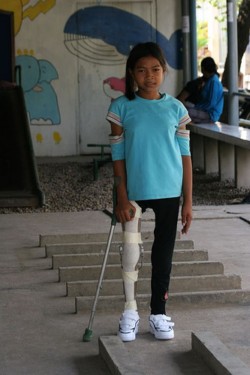
While the success of immunization promoted by vaccination campaigns can be expressed by such data, this same success also explains, in part, the reduction of the vaccinated population.
“The key point in falling vaccination rates is the fact that we are dealing with a generation that never experienced these diseases,” says medical pediatrician and member of the Board of Directors of the Instituto Criança é Vida (Child is Life Institute), Dr. Roberto Bittar. For him, an alert must be issued, recalling that, in past centuries, diseases like infantile paralysis, smallpox and various other infectious diseases killed millions of people.
In Dr. Bittar’s case, this not so distant reality was experienced personally. As a medical student at the University of São Paulo in the 1970s, he had a firsthand view of the dramatic effects of infantile paralysis. “At the Orthopedics Institute, there was a special wing that cared for people with infantile paralysis using equipment such as the so-called ‘iron lung’ and external ventilators that allowed people to breathe, since they were unable to breathe naturally because of the paralysis,” the doctor says.

The pediatrician explains that there was a revolution in the 18th century, when vaccines were introduced, starting with the one for smallpox. “People started to protect themselves and these diseases stopped killing,” he emphasizes.
The explanation is echoed by the thinking of Dr. Guido Carlos Levi. An infectious disease physician and 1st secretary of the Brazilian Society of Immunization (SBIm), Dr. Levi is author of books such as “Doenças que mudaram a história” [“Diseases that Changed History”] (Contexto Publishing House) and “Recusa de Vacinas – Causas e Consequencias” [“Vaccine Refusal – Causes and Consequences”], this last being available for free download on the SBIm website.
For those who never experienced it or have no idea of the impact caused by infectious diseases, Dr. Levi provides a very clear picture in a video about the role of vaccination in recent history of humankind. It was he who made the statement that served as inspiration for the introduction of this subject: “Vaccines are victims of their own success.”
However, the invisibility of diseases should be no reason to be caught off-guard. Medical Pediatrician Dr. Helena Sato, director of the São Paulo State Government Division of Immunization, says that although there have been no cases of infantile paralysis in São Paulo for more than 30 years, vaccination has never been interrupted. Dr. Sato explains that a determination must be made by the World Health Organization (WHO) before a disease can be considered eradicated in the world and its vaccine taken off the calendar. This is the case, for example, with the vaccine against smallpox. “Whether a vaccine is needed or not is not an individual decision,” she emphasizes.

The doctor says that in today’s world the virus causing infantile paralysis is still active in three countries: Afghanistan, Pakistan and Nigeria. And that, despite being distant countries, the great exchange of people between continents justifies maintaining immunization. If there is no infantile paralysis in Brazil it is because we continue to vaccinate,” she emphasizes.
“The impression that a specific disease no longer exists and that, for this reason, it is no longer necessary to vaccinate against it, is wrong, and should never justify any individual decision to interrupt vaccination”
Dr. Helena Sato
For Dr. Sato, the fear of reaction is another reason why people often do not vaccinate. In case of vaccination against the flu, the doctor also mentions a public belief that the vaccine might cause the disease. “The flu vaccine is inactive, in other words, it is composed only of virus fragments without any ability to cause disease – it only offers protection against it,” the doctor explains.
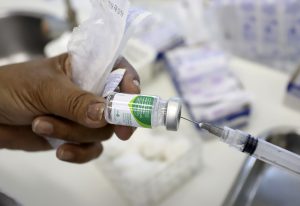
According to Dr. Bittar, people are very concerned about vaccine side effects, which really exist, but when compared to the risk and seriousness of the consequences the disease may have, they seem negligible.
Vaccine benefits largely exceed the risk of side effects, which are usually (99%) nothing more than fever or vaccine pain”
Dr. Roberto Bittar
Dr. Sato calls attention to the low coverage of the last National Flu Campaign. The goal was to vaccinate at least 95% of these groups.
With regard to the flu, the doctor also highlights a source of common confusion between the flu and a cold. According to her, mothers complain that their children still get the flu even after getting a flu shot.
A doctor in Pediatrics from the University of São Paulo, the doctor says that the flu and colds are different things. The vaccine is directed against the influenza virus, which causes the flu. It tries to prevent infected children’s flu from evolving to pneumonia, which would require hospitalization. A cold is caused by a rhinovirus and this leads to a much simpler clinical condition characterized by a cough and runny nose. “The flu can actually kill you,” she warns
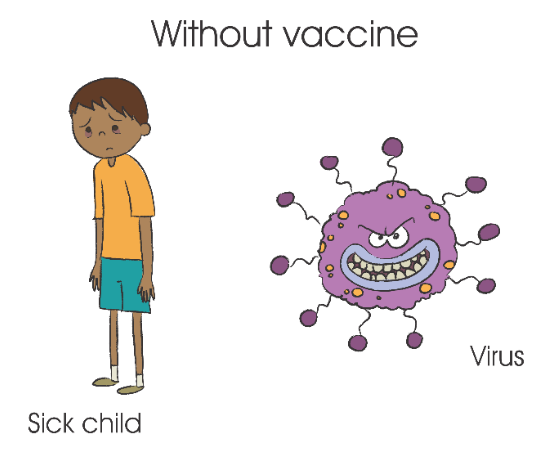
Dr. Bittar also points out that fear is often fed by pseudoscientific theories with a great deal of information not scientifically proven, but which are quickly disseminated by social media. One of these, for example, claimed a relationship between the measles vaccine and autism. In this case, the author of the article was convicted of spreading deceptive information.
In order to avoid such cases, a list of clarifications of the major fake news on the internet regarding vaccination is provided on the Ministry of Health website portal.
The fight against proliferation of this type of news is something we are all responsible for. Before sharing any kind of dubious information about health, every citizen can freely send a message through WhatsApp to the Ministry of Health and find out whether its content is true or not. Take note of the number and share it: (61) 99289-4640.
“All vaccines have the power to protect, but never cause disease”
Dr. Helena Sato
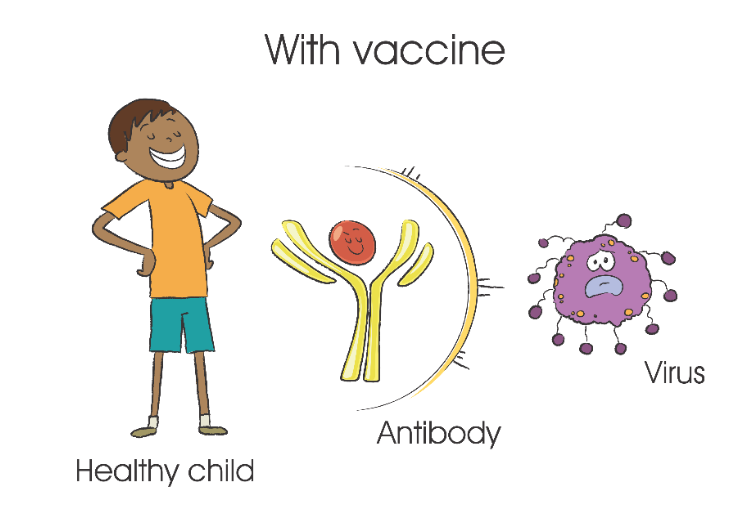
The Role of Education
According to Dr. Sato, Brazil today has one of the most complex vaccination calendars when compared to other countries in the world, with vaccines that protect children from about 17 diseases. The Calendário Nacional de Vacinação regarding the National Vaccination Calendar is available on the Ministry of Health website.
In São Paulo alone, there are 5,000 vaccination rooms spread all over the state. When leaving a public health clinic, mothers receive a note with the return date for the next dose of vaccine for their children. While supply is generally available, there seems to be a lack of awareness, since we have seen an alarmingly fall in vaccination rates among children.
In Dr. Bittar’s opinion, creation of a well-structured health policy in public and private schools is needed, involving education right from the beginning. “We need to create a culture, just as we did for cigarettes,” the doctor says.
For the pediatrician, when children learn early, starting with fun activities, to identify how lungs can be affected by smoking, they develop a repulsion for cigarettes and smokers. “Children react strongly to this kind of information. This creates a positive culture,” the doctor concludes.
Investing in children’s education to transform people’s health is what we do at the Instituto Criança é Vida (Child is Life Institute). In the “I take care of my health” certification unit we provide instruction for volunteers to teach children and their families the importance of vaccines and their role in our body.
Children learn about vaccination cards, what vaccines are for and how they were developed. They also receive information on the diseases they help to prevent and their possible consequences. There are also curiosities, such as the one explaining that the word “vaccine” derives from the word “cow.” This is because production of the first vaccine in the history of humankind, against smallpox, was obtained from cow wounds.
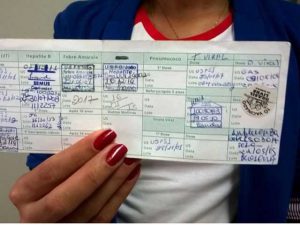
For Dr. Sato, the commitment of parents and those responsible for children is another factor in the success of immunization. “It is essential that the vaccination schedule is met. Some vaccines require only one dose for adequate protection, but others need additional doses for the proper protection,” the doctor adds.
The pediatrician also presents numbers that help show the importance of vaccinating all children. Vaccine coverage should reach at least 95% of children to be considered efficient. According to her, about 3 million children are born in Brazil every year. If we consider only this group, we would have 150,000 children unvaccinated in Brazil each year, which would be too many.
Even so, when this report went to press (08/29), vaccination coverage for poliomyelitis had reached only 65.6% in the state of São Paulo and 64.7% for measles. “This is why we have to meet the vaccination calendar of our children. Each vaccine on the calendar is there for a reason and its efficacy is above 90%,” she emphasizes.
“You can’t argue with the facts. Just look at the role played by the vaccines that have eradicated diseases all over the world, as in the case of smallpox”
Dr. Helena Sato